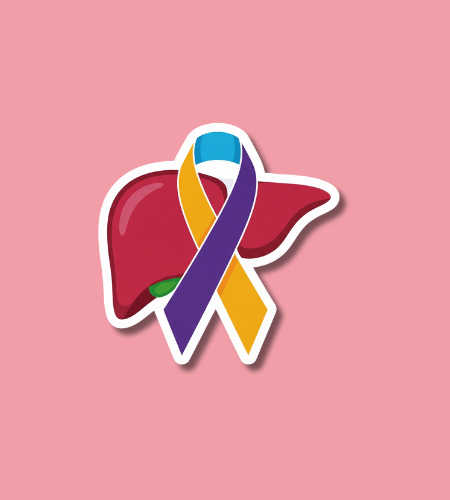World Hepatitis Day on July 28, observed annually, raises awareness about viral hepatitis—a group of infectious diseases that inflame the liver—and honors the birthday of Dr. Baruch Samuel Blumberg, the Nobel Prize laureate who discovered hepatitis B and developed its vaccine. 1
History of World Hepatitis Day
The date was officially recognized by the World Health Assembly in 2010, choosing July 28 to honor Dr. Baruch Blumberg’s birthday and his groundbreaking contributions to understanding and preventing hepatitis B. Before that, various hepatitis awareness events existed, but the 2010 resolution unified global focus on this single day. The date was selected to honor Dr. Baruch Blumberg, the Nobel Prize-winning scientist who discovered the hepatitis B virus (HBV) and developed both a diagnostic test and a vaccine.
Since its inception, World Hepatitis Day has become one of the WHO’s official global public health campaigns. It’s now recognized in over 100 countries, marked by free screening, vaccination drives, educational campaigns, and community events aimed at reducing the stigma and spread of hepatitis. 2
World Hepatitis Day, observed on 28 July, serves as a global call to intensify efforts against hepatitis. It aims to inspire greater involvement from individuals, communities, and international partners, and to emphasize the urgent need for a stronger global response — as highlighted in the WHO Global Hepatitis Report (2017).
One of the biggest challenges in eliminating hepatitis by 2030 remains the low rates of testing and treatment, which must be urgently addressed. 2
Why is World Hepatitis Day important?
Hepatitis kills around 1.3 million people annually, a number comparable to deaths from HIV/AIDS, tuberculosis, or malaria. Many cases go undiagnosed due to a lack of testing, which means individuals may unknowingly transmit the disease until serious liver damage occurs. This day highlights that early detection saves lives.
Furthermore, despite available vaccines for hepatitis A and B and curative treatments for hepatitis C, systemic barriers—like stigma, limited access to diagnostics and care, and weak health systems—pose significant challenges. By calling “Let’s Break It Down” for 2025, the campaign urges dismantling financial, social, and systemic hurdles standing in the way of global elimination.
- reminding us hepatitis affects millions silently
- showing early diagnosis really makes a difference
- celebrating scientific breakthroughs like Blumberg’s vaccine
- spotlighting stigma that keeps people from getting help
- urging systems change for fair access to care
Top 10 Essential Steps to Prevent Hepatitis
- Get vaccinated
Vaccines are available for hepatitis A and B. Ensure you and your children are fully vaccinated. - Avoid sharing needles or personal items
Do not share needles, razors, toothbrushes, or nail clippers, as these can transmit bloodborne viruses. - Drink clean water and eat safe food
Ensure drinking water is purified and food is properly cooked to avoid hepatitis A and E, especially when traveling. - Practice safe sex
Use condoms and avoid unprotected sex, especially with new or multiple partners, to reduce the risk of hepatitis B and C. - Maintain good hygiene
Wash hands thoroughly with soap and water, especially before eating and after using the toilet, to prevent hepatitis A and E. - Ensure safe medical practices
Only receive injections or tattoos from licensed professionals who use sterile equipment. - Get tested regularly
Especially if you’re in a high-risk group, get screened for hepatitis to detect and treat infections early. - Avoid illegal drug use
Injection drug use is a major risk factor. Seek help for addiction and access clean needle programs if needed. - Use precautions in healthcare settings
Healthcare workers should follow strict infection control guidelines to prevent occupational exposure. - Educate yourself and others
Awareness is key — understanding how hepatitis spreads helps protect yourself and those around you.
How to Observe World Hepatitis Day
Getting involved doesn’t require medical training—just intention. Consider getting tested for hepatitis B and C, or help someone you know get tested. By learning your status, you can act early and prevent complications or transmission.
You can also join awareness efforts: share educational posts using the official WHO toolkit, participate in testing drives, advocate for improving access to diagnostics and vaccines, or host a liver-health discussion in your community. Even a conversation can challenge myths and reduce stigma.
- get tested or help someone else do it
- donate to organizations fighting hepatitis globally
- share reliable info about hepatitis risks and prevention
- support a local screening or vaccination drive
- light up a building or change your profile pic to blue
World Hepatitis Day Dates Table
| Year | Date | Day |
|---|---|---|
| 2026 | July 28 | Tuesday |
| 2027 | July 28 | Wednesday |
| 2028 | July 28 | Friday |
| 2029 | July 28 | Saturday |
| 2030 | July 28 | Sunday |
Subscribe to our newsletter and never miss a holiday again!

